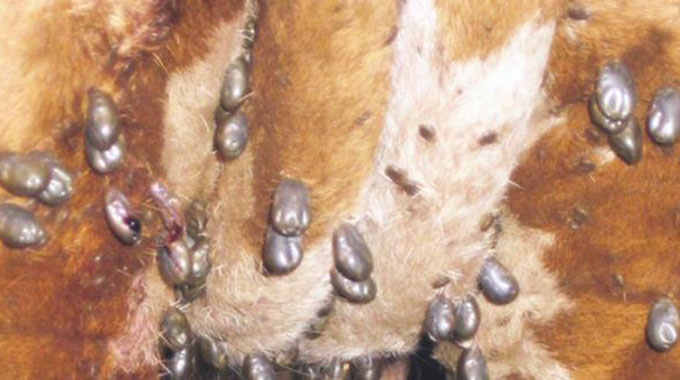
Elita Chikwati
Agriculture Reporter
Far fewer cattle died from January Disease, more formally known as theileriosisas this time around, as over 350 000 households countrywide in tick-borne hot spots received tick grease, the Department of Veterinary Services (DVS) has said.
Since 2017, January Disease has killed over 500 000 cattle in Zimbabwe.
The Department of Veterinary Services has urged farmers to collect a free tin of tick grease from their nearest veterinary office or Grain Marketing Board depot.
The tick grease is for free and the DVS has engaged local leadership to mobilise transport to ferry the tick grease to distribution points.
Government launched the Presidential Blitz Tick Grease Programme last year to curb the spread of tick-borne diseases, particularly January Disease.
The tick grease programme is in line with the National Development Strategy 1, which prioritises animal health and production through strengthening farmer knowledge, skills in livestock production and health, to enhance productivity.
DVS chief director, Dr Josphat Nyika, last week said the tick grease scheme has saved thousands of cattle from January Disease this year due to the intervention by President Mnangagwa through the livestock inputs scheme to over one million households.
“This year, the livestock sector has witnessed a drastic reduction in the numbers of cattle dying from January Disease because farmers who have received tick grease have started applying it to the cattle,” he said.
“We received information from provinces and they show a decline in cattle deaths. We want to encourage farmers to approach their local veterinary offices and GMB for their supply of tick grease. All affected provinces have received adequate stocks of tick grease.
“However, southern provinces such as Matabeleland South, part of Midlands and Masvingo are still to receive their allocations, but no problem of tick-borne diseases have been reported at provincial, district and dip tank level in those areas.”
The distribution of tick grease has been slowed down by rains in some areas.
The tick grease programme is meant to supplement intensive cattle dipping programmes in affected areas.
Intensive dipping is when cattle dip three times in two weeks and tick grease will be applied in-between the dipping sessions.
Farmers are advised to apply tick grease in the ears, under the tail and on the tail brush, which are feeding sites of the brown ear tick which transmits January Disease.
